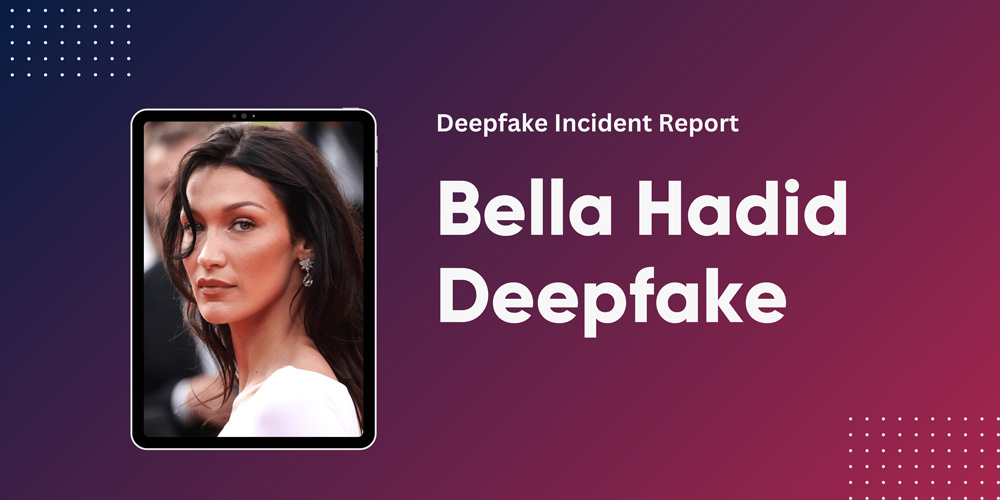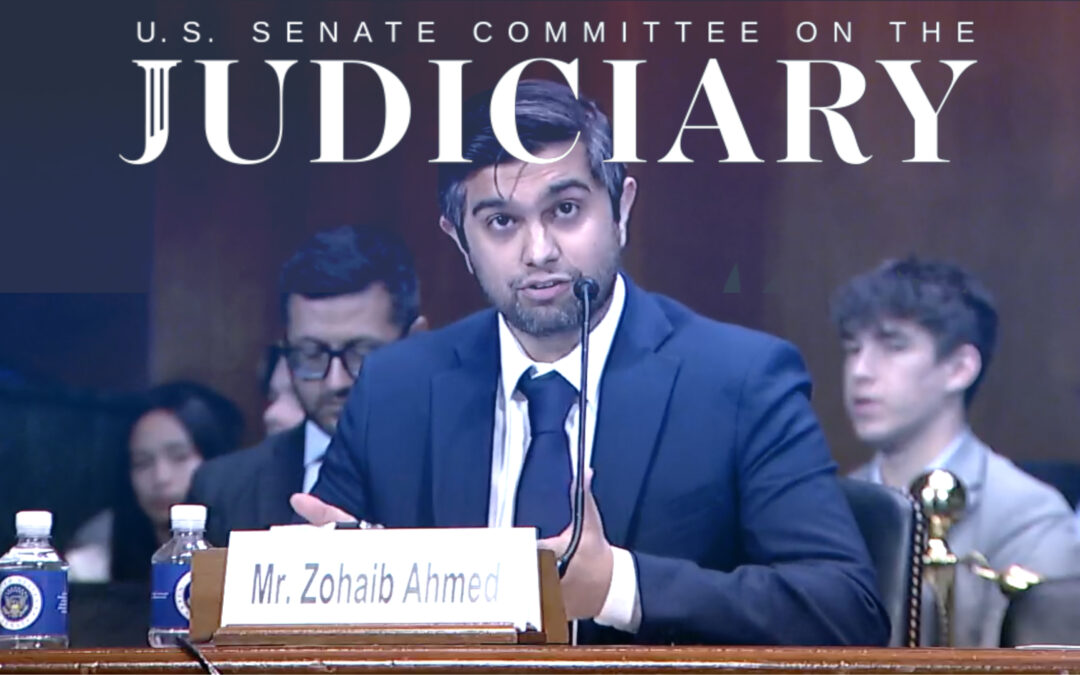The Emergence of the Deepfake Video
Recently, a deepfake video emerged online featuring American supermodel Bella Hadid seemingly making contradictory statements to her prior expressed views about the Israeli-Palestinian conflict. This deepfake incident highlights the growing potential for AI voice synthesis to spread misinformation. This also stresses the urgent need for innovations in AI security, especially in sensitive areas like the Israeli-Palestinian conflict.
Who is Bella Hadid and The Antagonist?
Having graced over 25 Vogue magazine covers, Bella Hadid is a global supermodel who has walked runways for high-end brands like Chanel, Marc Jacobs, and Givenchy. She was named one of Time’s Most Influential People of 2023 and is the daughter of a Palestinian father and Dutch mother. Hadid has over 61M Instagram followers and is well-known for her advocacy on various social and political issues, including the Palestinian-Israeli conflict.
The culprit who posted the deepfake is Danel Ben Namer, CEO of Shrinking the Conflict an Israeli NGO that tries to take a pragmatic approach to decomposing the complexities of the Arab-Israeli conflict.
The Deepfake Video
Deepfakes leverage AI algorithms to manipulate video or audio and portray someone saying or doing something they didn’t actually say or do. The Bella Hadid deepfake video originated from a 2016 speech she gave at a Lyme Disease gala event. Her voice and likeness were artificially altered to make it appear she was discussing the Israeli-Palestinian conflict in a manner inconsistent with her known perspectives. Below are the videos side-by-side for comparison.
Bella Hadid stands with Israel.
— Danel Ben Namer (@DanelBenNamer) October 28, 2023
Sinwar didn’t expect to get this surprise for his 61 birthday 🎈🎂#WeFixedItForBella pic.twitter.com/ZcXy42hP04
The real Greta Thunberg BBC interview.
Fake vs Real Video Content
Bella Hadid’s deepfake video can be found in Ben Namer’s Tweet to the left. Looking closely, her mouth’s animation has been altered. There is also a platform notification underneath the video giving users context and warns that the content contains deepfake video and audio.
Conversely, the video above is the original video from her 2016 speech at the Lyme Disease Gala where she speaks about her struggles with the disease.
The Power of Modern AI Voice Cloning
Advanced deep learning models can now clone voices with striking realism, capturing subtle tonalities and emotional cues. Tools like AI voice cloning, an AI voice generator, and free voice cloning software enable creating deepfakes like the Bella Hadid video. As these technologies become more accessible, the threat of viral disinformation proliferates.
Deepfake voice synthesis models can be trained on just a few minutes of someone’s speech to produce believable replicas. The systems analyze vocal patterns, rhythms, and timbral qualities to reconstruct diverse vocal characteristics. High-fidelity voice cloning makes it increasingly effortless to generate fake celebrity statements or political commentary.
Deepfake Voice Detection
However, emerging techniques in AI security offer hope for detection and prevention. Real-time deepfake detection algorithms can analyze voice inputs to determine authenticity. Neural speech watermarking embeds tracking data directly into the audio signal to confirm provenance. Implementing robust safeguards ensures businesses and public figures can utilize AI voice synthesis without enabling abuse.
Deepfake detection models are trained to identify the subtle artifacts and inconsistencies that emerge in synthesized speech. By learning from hundreds of hours of real and fabricated examples, detectors acquire a nuanced understanding of genuine human vocalization. Resemble AI continues to push the limits on audio deepfake detection with Resemble Detect, a deep neural network AI voice detector. Detect can identify deepfake voices with 98% accuracy. Our team’s recent research on new deepfake detection methods and deep learning techniques is keeping us one step ahead of deepfake technology.
What’s Next?
At a time where there is exponential technological change, ensuring AI aligns with human values will require generative AI tools and government involvement to safeguard society. While risks exist, we maintain agency in crafting systems that prioritize truth. The Bella Hadid incident illuminated current vulnerabilities but also possibilities for progress through insight and cooperation. With AI ethics, we can build an equitable world where creativity flourishes.





